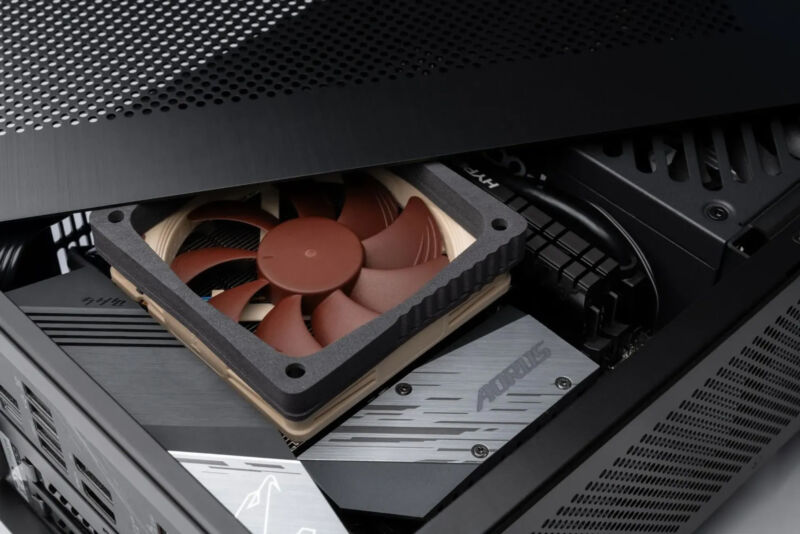
A number of device and accessory brands—including Adafruit, Framework Computer, Noctua, and Raspberry Pi—have started sharing free official 3D-printable models of parts, accessories, and mods on Printables, kicking off what the site hopes is a general trend toward repair-friendly parts and community mods.
Prusa Research, which shifted its PrusaPrinters site to Printables.com in March, writes that it had been “talking with a couple of giants in their respective industries” before launching a new section of the site, Brands. Giving customers the option of locally printing certain parts reduces inventory and shipping needs. By doing so, the company writes, that “makes it easier for brands to support the right-to-repair initiative”—and create some cool mods.
“We hope that in a few years, it will be the norm to release 3D-printable models to accompany the brand’s products,” writes Mikolas Zuza, marketing specialist at Prusa Research.
At the moment, there are nine brands on the Brands page, including Prusa Research itself. Adafruit’s page has several utility pieces for DIY projects and cases and expansions for their products, like the NeoPixel. Framework Computer has posted just one official model, its 3D-printable mainboard case (the one Lenovo initially got patent-snippy about), but has highlighted community models, including an “Improved” SD expansion card. If you’re deep down a PC-cooling rabbit hole, Noctua and Cooler Master have lots of brackets, clips, ducts, spacers, and other models.
Many of the 3D models existed previously on these companies’ own sites, but a central, searchable site should help with discovery and spread.
-
A WWI-era St.-Louis-class cruiser, created by Vlado Turek from Prusa Research for World of Warships.Printables.com
-
A Raspberry-Pi-Pico-based facsimile of Tony Stark’s Arc Reactor.Printables.com
-
From game developer Bohemia Interactive, from left: a Gryphon from Ylands, the Yellow King from DayZ, and a tank from Arma IIIPrintables.com
-
40 mm exhaust fan shrouds printed for dual or triple-fan setups in an NZXT case.
Brand profiles on Printables have a small blue “Verified” badge, a familiar icon to anyone watching recent Twitter news. Besides brands, “well-known designers in the 3D printing community” can also be verified on Printables (though details are not provided).
It remains to be seen whether other brands will coalesce on Printables, a site that, while relatively open and collaborative, exists under the purview of one particular 3D-printing company. It’s at least a place to start looking if you’re wondering whether a small resin object might serve you better than another new product.
https://arstechnica.com/?p=1905825

